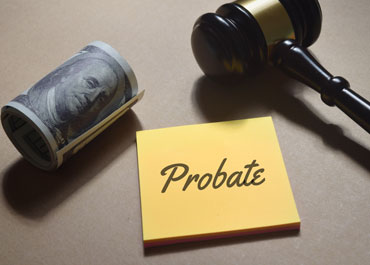
When a person’s estate passes through probate after their death, it can be subject to a number of different expenses, such as fees for attorneys, executors, appraisers, and accountants. Depending on how complex the estate is, and how long the probate process takes, these fees can add up to thousands of dollars. If you want to reduce such expenses, then consider these three tips that can help you avoid probate.
Name A Beneficiary
Accounts and other property that is in your name must go through probate after you pass away. But if you name a beneficiary during your lifetime, then your accounts and other property will be transferred to the person you named without having to pass through probate court.
You can designate the following assets to beneficiaries:
- Life Insurance
- Retirement Plans
- Real Estate
- Annuities
Create & Fund A Revocable Living Trust
When you create a revocable living trust and properly fund it, you can transfer the ownership of your accounts and property to the trust by re-titling them into the name of the trust. With this arrangement, you can still be in charge of all legal decisions until you pass away. You can also use the accounts and property as the current beneficiary. After you pass away, the successor trustee you have named will take over and distribute your assets in accordance with your wishes.
Own Property Jointly
You can also avoid probate if your property is owned jointly with a right of survivorship. The function of joint ownership is similar to designating a beneficiary because ownership is automatically transferred after you pass away.
You can establish joint ownership of property under the following conditions:
- Joint Tenancy with Right of Survivorship: Ownership will transfer to other tenants upon your death
- Tenancy by Its Entirety: This a form of joint tenancy with a right of survivorship, but some states only allow this for married couples
- Community Property: This is property that was obtained during your marriage
We Have The Dedicated Resources You Need On Your Side
At Legacy Law Centers, we take great pride in helping our clients by providing them with our vast network of resources, which includes financial managers and tax experts. Our attorneys know that each of our clients has unique estate planning goals, and we will take the time to discuss your situation so that we can draft a customized estate plan that fits your vision for your legacy.
Call our law firm today at (571) 260-0827 request a case consultation with one of our compassionate legal professionals.
Start Planning Today!
(571) 260-0827